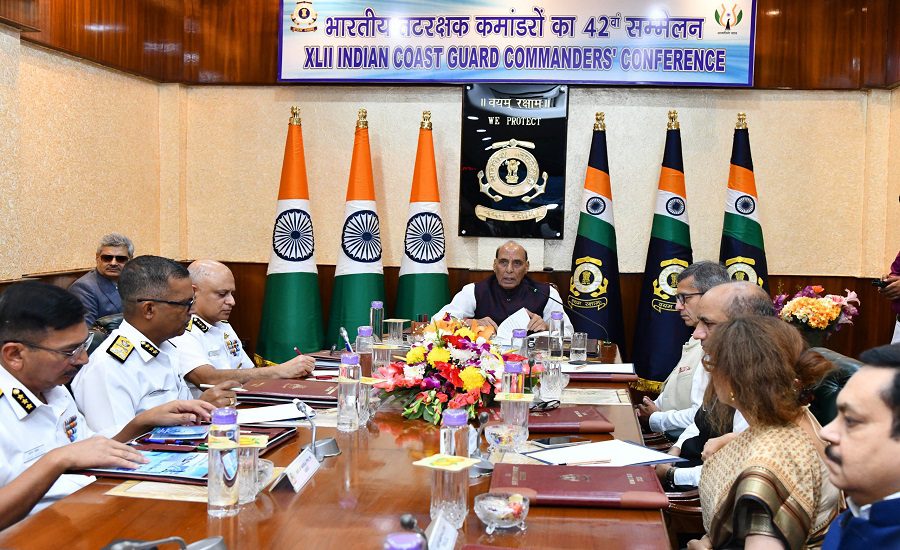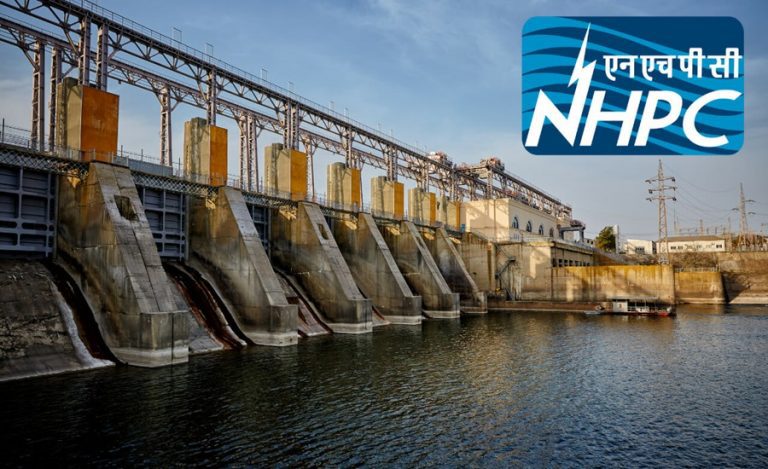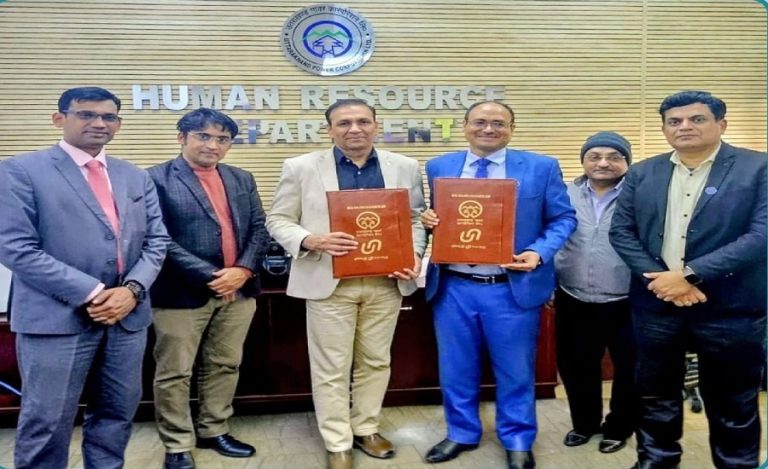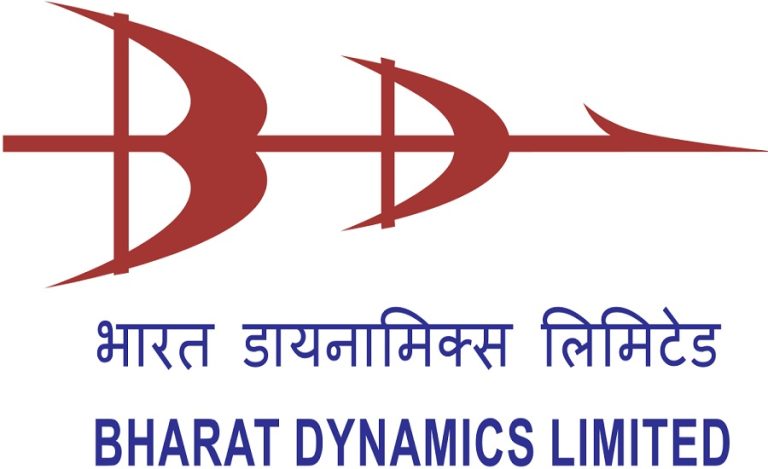New Delhi: Raksha Mantri Rajnath Singh addressed the inaugural session of the 42nd Indian Coast Guard (ICG) Commanders’ Conference held at the ICG Headquarters in New Delhi, commending the force’s professionalism and its pivotal role in securing India’s maritime interests. The three-day conference, which began on September 28, 2025, brings together senior ICG leadership to discuss the evolving maritime security challenges and strategic priorities in the context of India’s growing maritime influence.
The Conference focuses on enhancing inter-service coordination, strengthening maritime domain awareness, and developing future capabilities that align with national maritime priorities. Distinguished participants at the event include the Chief of the Naval Staff and the Engineer-in-Chief, who will engage in discussions about operational performance, human resource development, and logistical support, with a strategic emphasis on bolstering India’s maritime presence.
ICG: A Pillar of National Security
In his address, Raksha Mantri described the ICG as a vital pillar of national security that has significantly evolved from a modest fleet into a formidable force. The ICG now boasts 152 vessels and 78 aircraft, earning global recognition for its professionalism and humanitarian service. Rajnath Singh highlighted the ICG’s dual role, bridging both internal and external security by patrolling India’s Exclusive Economic Zone (EEZ), thus preventing external threats while simultaneously addressing illegal activities like drug trafficking, smuggling, and illegal fishing.
“While the Armed Forces defend external threats, the ICG operates in the grey areas of both internal and external security, providing a seamless interface between various national security agencies,” he said, underscoring the force’s role as a force multiplier.
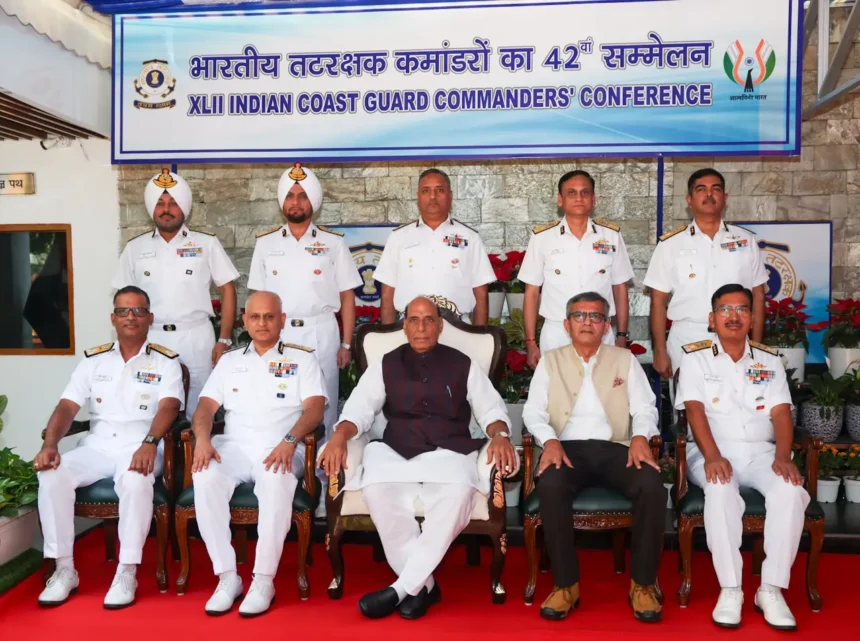
Read also: India Bids Emotional Farewell to MiG-21, Rajnath Singh Highlights Legacy and Indigenous Future
Women Empowerment and Inclusive Participation in ICG
A highlight of Rajnath Singh’s address was the empowerment of women officers in the ICG, noting that they now serve as frontline warriors. These women officers, trained and deployed in various operational roles such as pilots, hovercraft operators, air traffic controllers, and logistics officers, are crucial to ICG’s evolving structure. “This transformation reflects our vision of inclusive participation, where women contribute equally in leadership and operational capacities,” Rajnath Singh emphasized.
Technological Vigilance and Integration of Advanced Capabilities
Rajnath Singh stressed that maritime warfare has entered a new phase, with satellites, drones, and sensors redefining the nature of conflicts. “Warfare is now measured in hours and seconds,” he said, adding that preparedness, adaptability, and rapid response must be the cornerstones of ICG’s future vision. The Raksha Mantri urged the ICG to integrate cutting-edge technologies, such as Artificial Intelligence (AI), Machine Learning (ML)-based surveillance, and automated response systems, into its operations.
He also warned of the rising threat of cyber and electronic warfare, advising the ICG to be vigilant against cyber-attacks and electronic jamming. “We must be ahead of adversaries by upgrading our systems and training to guard against such threats,” he emphasized.
Indigenisation and Self-Reliance: Aatmanirbhar Bharat
Rajnath Singh reaffirmed the government’s commitment to modernising the ICG through indigenous platforms and technologies. “Nearly 90% of the ICG’s capital budget is allocated to indigenous assets,” he noted, highlighting the growing importance of Aatmanirbharta (self-reliance) in strengthening national security. This approach not only enhances the operational strength of the ICG but also contributes significantly to India’s shipbuilding sector and the economy.
The focus on indigenisation aligns with the Government’s vision of Aatmanirbhar Bharat, which encourages domestic production of defense systems, thus boosting India’s defense capabilities and reducing reliance on imports.
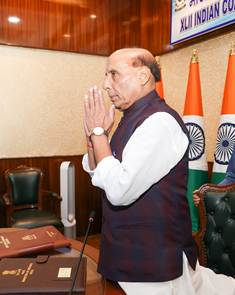
Complexity of Maritime Borders
In his speech, the Raksha Mantri pointed out the challenges of maritime security, contrasting it with the relatively stable and predictable nature of land borders. “While land boundaries are permanent and well-marked, maritime borders are fluid, shifting with tides, waves, and weather conditions,” he stated, emphasizing the need for continuous vigilance.
Given the complexities of maritime borders, Rajnath Singh stressed that the ICG’s round-the-clock surveillance and advanced technology are critical for safeguarding India’s 7,500 km coastline and island territories, such as the Andaman & Nicobar Islands and Lakshadweep.
Humanitarian Service and Disaster Response
The humanitarian dimension of the ICG’s role was also acknowledged by Rajnath Singh, who praised its swift response in disaster management and rescue operations. “The ICG has consistently acted swiftly to protect lives and property during crises, whether responding to cyclones, oil spills, industrial accidents, or foreign vessels in distress,” he said. Since its inception, the ICG has rescued over 14,500 lives, including 76 Search and Rescue (SAR) missions conducted in 2025 alone.
Challenges in Regional Geopolitical Stability
Rajnath Singh emphasized the increasing geopolitical awareness needed by the ICG, as maritime security is often influenced by developments in neighboring countries like Myanmar, Bangladesh, and Nepal. He highlighted the impact of instability in these regions, particularly in the Bay of Bengal, which could lead to irregular maritime activities like illegal migration or refugee influxes.
Futuristic Roadmap for 2047
Rajnath Singh concluded his address by calling on the ICG to develop a futuristic roadmap that anticipates new challenges, integrates emerging technologies, and adapts to the evolving nature of maritime threats. “Warfare is no longer about months or years; it’s about hours and seconds,” he reiterated, stressing the importance of adaptability and rapid response in the ICG’s vision.
He reaffirmed that India’s march towards becoming a developed nation by 2047 rests on the pillars of both prosperity and security. “The ICG’s motto, ‘Vayam Rakshamah’ (We Protect), is not just a slogan, but a pledge that will ensure we hand over a strong and secure India to future generations,” he affirmed.
ICG’s Impressive Track Record
Since its establishment, the ICG has made significant contributions to maritime security. Some of its notable achievements include:
- Apprehending 1,638 foreign vessels and 13,775 foreign fishermen involved in illegal activities.
- Seizing 6,430 kg of narcotics, valued at Rs. 37,833 crore.
Conducting 76 SAR missions in 2025, saving 74 lives, with a cumulative total of 14,500 lives saved.
Conclusion
The 42nd ICG Commanders’ Conference serves as an important platform for enhancing India’s maritime capabilities, strengthening inter-agency coordination, and preparing the ICG for the emerging challenges in the maritime domain. With a focus on indigenous growth, technological integration, and humanitarian service, the ICG is poised to continue its crucial role in safeguarding India’s interests on both the national and global stage.

